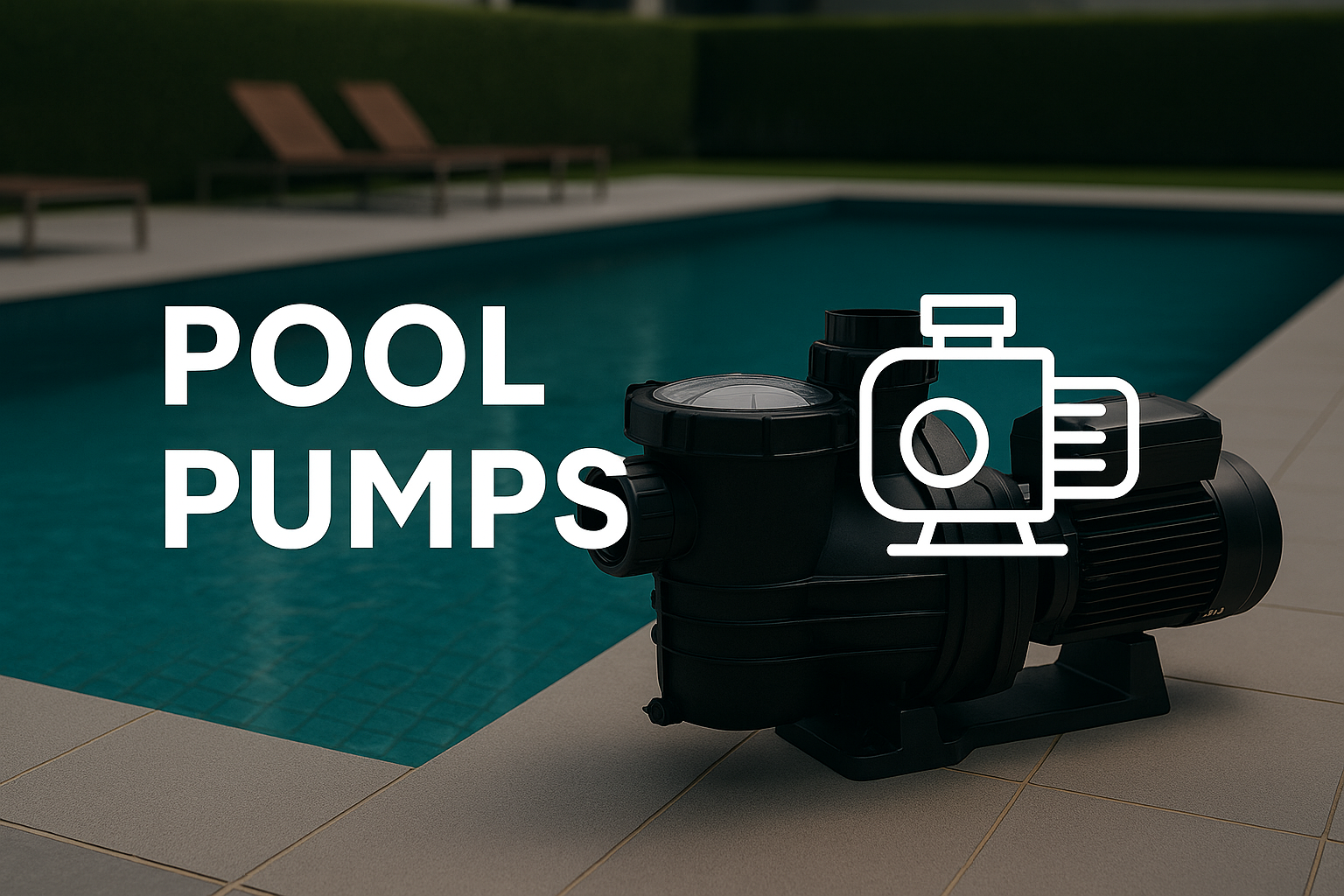💧 Best Practice Guide to Pool Pumps

What Does a Pool Pump Do?
The pool pump is the heart of your pool system. It circulates water through your filter, chlorinator, heater, and back into the pool — keeping everything clean, balanced, and safe for swimming.
Without a functioning pump, your pool becomes stagnant and unfiltered — and quickly turns green.
💼 Why Your Pump Choice Matters
- Efficiency: The right pump can reduce energy bills by hundreds per year.
- Water Quality: Proper circulation helps sanitisation and filtration.
- Compatibility: Your pump must suit your pool size and connected equipment.
- Noise: Modern pumps are far quieter than older models.
⚙️ Pump Types Explained
1. Single-Speed Pumps
Old-school, always-on full power.
- ✅ Simple and cheap to buy
- ❌ Inefficient and noisy
- ❌ Being phased out in many regions due to high energy use
Best for: Rare cases where regulation allows or as a short-term replacement.
2. Dual-Speed Pumps
Two speed settings: high (for vacuuming/backwashing) and low (for daily use).
- ✅ More efficient than single-speed
- ✅ Can save energy at low speed
- ❌ Limited flexibility
Best for: Mid-size pools without complex equipment setups.
3. Variable-Speed Pumps (VSPs)
Fully programmable, energy-efficient, and whisper-quiet.
- ✅ Up to 80% cheaper to run
- ✅ Customisable speeds for filtration, heating, cleaning
- ✅ Quieter and longer lasting
- ✅ Rebates available in some areas
Best for: Most modern pools, especially those with chlorinators, heaters, and automation.
📐 How to Choose the Right Pump
| Factor | What to Consider |
|---|---|
| Pool Volume | Larger pools = bigger flow rate needed (measured in LPM) |
| Filtration Type | Sand/glass filters need stronger flow than cartridge |
| Heater/Chlorinator? | Heat pumps and salt chlorinators often work better at low speeds |
| Noise Sensitivity | Look for low-decibel pumps if near bedrooms or neighbours |
| Automation Needs | Some pumps integrate with pool control systems |
🛠 Maintenance Tips
- Clean pump basket weekly (or more often if you have trees nearby)
- Check for leaks around seals or unions
- Listen for strange noises — rattling may indicate bearing wear or blockages
- Avoid running dry — pumps must always be primed with water
- Inspect lid O-ring regularly and lubricate to prevent air leaks
❓ Frequently Asked Questions
How long should I run my pump each day?
Generally 6–8 hours/day in cooler months and 10–12 hours/day in summer. Variable-speed pumps can run longer at lower speeds to save power.
Can I install a pump myself?
We strongly recommend professional installation to ensure correct plumbing, electrical safety, and warranty compliance.
Is it worth upgrading to a variable-speed pump?
Yes. Most customers recover the cost difference within 1–2 years thanks to lower electricity bills.
What happens if I run my pump dry?
It can overheat and permanently damage the motor or impeller. Always check for water before turning on.
How do I know if my pump is failing?
Signs include loud whining, reduced flow, overheating, or tripped circuit breakers.
📞 Need Help Selecting a Pump?
Tell us your pool size and setup, and we’ll recommend the perfect pump — no guesswork needed. We offer installation and bundle pricing with filters, chlorinators, and automation for maximum efficiency.
Let me know when you’re ready to add specific AstralPool pumps — I can drop them straight into the format above. Or I can move on to your next equipment category, such as robotic cleaners, automation systems, or lighting.
